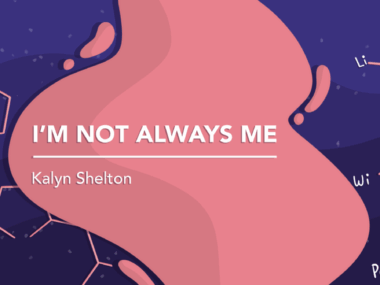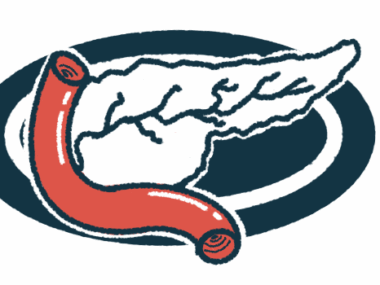How I’m redefining community with a porphyria book club
Yearning for deeper connections, a columnist focuses on building community
Written by |

The first thing I wanted to do after I learned I had acute hepatic porphyria (AHP) was to find my people.
I received my diagnosis at the Mayo Clinic in Rochester, Minnesota, a few hours from my house. I knew my doctors couldn’t name names of other porphyria patients, but that didn’t stop me from asking about their existence. The answer they gave me, I never expected. There were none. Not that my doctors had seen, at least.
After my initial biochemical labs indicated AHP, I needed genetic testing to confirm the diagnosis. My mother and I arrived in Rochester in February 2017. Staying in a hotel outside of downtown saved us money, but to make my appointment, we had to drive and, even more challenging, find parking. We weaved the car slowly upward through narrow channels of a parking garage, exclaiming in delight when we finally found a spot.
The Mayo Clinic consists of a series of historic, architecturally significant buildings that flank the parking ramp, where we shuffled to the nearest bay of elevators. Subzero temperatures blasted our bare faces, and we pulled our unzipped coats around us for protection. As we waited, shivering, the carillon bells sang.
It may have been cold outside, but we were spending our day in the town’s toasty underbelly. The subway is a series of underground pedestrian tunnels connecting the Mayo Clinic’s offices and specialties. As I was weak and resting from a recent acute attack, we snagged a wheelchair. I rolled from the lab to lunch and finally to my appointment.
A genetic test would confirm AHP, but I was nervous. What if my biochemical markers were wrong, and no mutation for the disease was found? Some people are never able to identify a gene mutation. That’s unfortunate, and, in some cases, results in a form of medical gatekeeping that can keep people without a confirmed genetic diagnosis from accessing proper care.
We arrived at the clinical genomics department, signed in, and found a jigsaw puzzle while we waited for my name to be called. No Mayo Clinic waiting room is complete without 500 pieces of a landscape or fruit basket scattered across a card table. I began searching for pieces to complete the straight edge of the puzzle’s perimeter.
When my family does jigsaw puzzles, my oldest will flit from section to section, trying to make pieces with similar coloring fit. My youngest, on the other hand, will often analyze the shapes of individual pieces and wait to try fitting them together until he’s confident he’s found the match.
Finding my people
I joined the American Porphyria Foundation (APF) Facebook page as soon as I got my genetic testing confirmation. I began to reach out and soon realized the people I was meeting lived in other states and sometimes other countries. I attended Zoom meetings and in-person patient days in San Francisco and Chicago.
Meeting others with porphyria changed my life. I learned more about my disease, the doctors I needed, and how to manage day-to-day life. I found so much warmth and compassion among caregivers and advocates. Most importantly, I felt real understanding. The only people who “get” AHP are those who’ve gone through it.
Both virtual and in-person meetups are great, but after a while, the doctor presentations get old, and patient stories blur together. These things were critical when I was diagnosed, but I began yearning for a more personal connection. I wanted to get to know others with porphyria, but didn’t want a connection based solely on the disease. My AHP influences every decision I make, so of course it will come up in conversation, but can we talk about anything else? Please?
I reached out to the APF leadership about hosting a fun gathering that wasn’t focused on porphyria education. Many of us live like we’re still in lockdown, avoiding the sunshine or germs. But we enjoy escaping our lives through hobbies like reading.
A book club for the porphyria community
I volunteered to co-lead a book club with my friend and fellow APF volunteer Nicole Castellano. It’s a free, virtual get-together for patients, caregivers, and advocates to talk about something other than porphyria. We’ll meet on Zoom the second Tuesday of every month at 8 p.m. ET, starting on Aug. 8. Email [email protected] if you’d like to join.
I think shared perspectives of managing a chronic, rare disease will influence discussions and that we’ll engage in conversations I couldn’t have in the same way with my able-bodied friends. I’m looking forward to connecting with the porphyria community on a new level.
Loneliness, isolation, and the need for community are just a few aspects of living with AHP, and this book club is only a part of the jigsaw puzzle. I’ll keep trying new pieces until they fit.
Note: Porphyria News is strictly a news and information website about the disease. It does not provide medical advice, diagnosis, or treatment. This content is not intended to be a substitute for professional medical advice, diagnosis, or treatment. Always seek the advice of your physician or other qualified health provider with any questions you may have regarding a medical condition. Never disregard professional medical advice or delay in seeking it because of something you have read on this website. The opinions expressed in this column are not those of Porphyria News or its parent company, Bionews, and are intended to spark discussion about issues pertaining to porphyria.







Leave a comment
Fill in the required fields to post. Your email address will not be published.